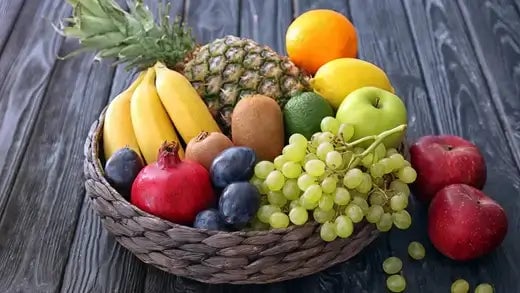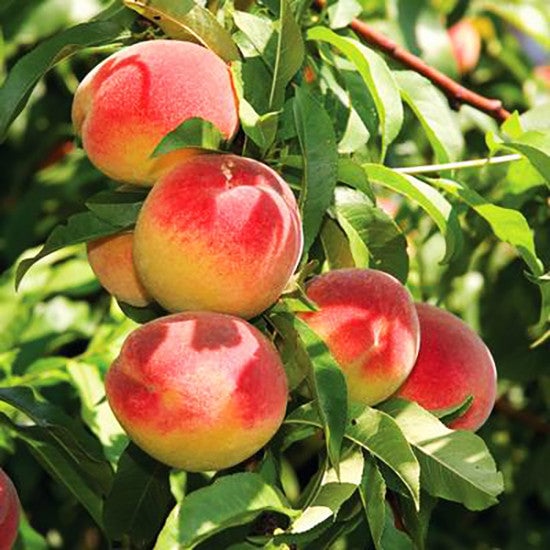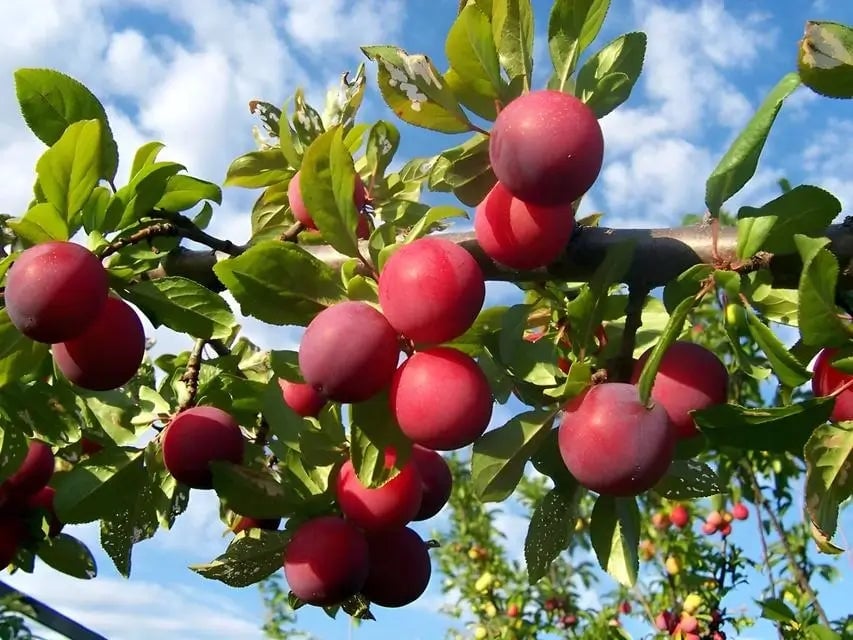Fruits are nature's bounty, offering various colors, flavors, and nutrients contribute to our overall health and well-being.
With various fruits available worldwide, each has its unique characteristics and nutritional profile. This article will explore different fruit varieties and their health benefits, highlighting why incorporating a diverse range of fruits into your diet can be advantageous.
Apples are one of the more widely consumed fruits globally, known for their sweet and crunchy taste. They are rich in dietary fiber, particularly soluble fiber known as pectin. Pectin helps regulate blood sugar levels and promotes a healthy digestive system.
Berries, including strawberries, blueberries, raspberries, and blackberries, are renowned for their vibrant colors and high antioxidant content. The antioxidants found in berries, such as anthocyanins and quercetin, are associated with reducing inflammation, protecting against chronic diseases, and improving cognitive function.
Citrus Fruits like oranges, grapefruits, lemons, and limes are recognized for their high vitamin C content. Citrus fruits also contain flavonoids, which have antioxidant and anti-inflammatory properties. The fiber in these fruits supports digestion and may help manage cholesterol levels.
Bananas contain potassium content, an electrolyte crucial for maintaining proper heart and muscle function. They also provide vitamin B6, which aids in brain development and process. Bananas are easily digestible and can offer a quick energy source due to their carbohydrate content.
Tropical Fruits like mangoes, pineapples, and papayas are delicious and offer a wealth of nutrients. Mangoes are rich in vitamin A, promoting healthy vision and immune function. Pineapples have anti-inflammatory properties that aid in digestion. Papayas are packed with vitamin C, folate, and papain, an enzyme beneficial for digestion.
The Delightful Health Benefits of Tropical Fruits
Tropical fruits have a captivating allure, not just for their exotic flavors and vibrant colors but also for their remarkable health benefits. These fruits thrive in warm climates and are packed with diverse nutrients that contribute to overall well-being. From the succulent mangoes to the tangy pineapples and luscious papayas, tropical fruits offer many advantages that make them a delightful addition to your diet.
- Rich Source of Vitamins and Minerals Tropical fruits are renowned for their impressive vitamin and mineral content. Mangoes, for instance, are bursting with vitamin A, which supports healthy vision, immune function, and skin health. Papayas are a treasure trove of vitamin C, which boosts the immune system and aids collagen production, promoting youthful skin and wound healing. Pineapples contribute to your daily intake of vitamin C, manganese, and thiamine, which are essential for energy production and metabolism.
- Powerful Antioxidants Many tropical fruits are rich in antioxidants that combat oxidative stress. These include vitamins C and E and phytonutrients like beta-carotene and flavonoids. Antioxidants protect cells from damage, reduce the risk of chronic diseases, and contribute to overall longevity. The combination of antioxidants in tropical fruits supports heart health and cognitive function and may even play a role in cancer prevention.
- Digestive Health Tropical fruits often contain enzymes that aid in digestion. Pineapples, for instance, contain bromelain, an enzyme that breaks down proteins and supports a healthy gut. This enzyme not only assists in digestion but also possesses anti-inflammatory properties. Similarly, papayas contain papain, an enzyme that aids protein digestion and helps prevent bloating and digestive discomfort.
- Hydration and Electrolyte Balance Tropical fruits are often high in water content, making them excellent for staying hydrated. Watermelon, with its juicy and refreshing flesh, is an ideal choice for replenishing fluids on a hot day. Additionally, tropical fruits like bananas and coconut water provide essential electrolytes such as potassium, which play a crucial role in maintaining proper heart and muscle function and fluid balance.
- Dietary Fiber Fiber is essential for digestive health, and many tropical fruits offer good dietary fiber. Fiber supports regular bowel movements, prevents constipation, and helps regulate blood sugar levels. The fiber content in tropical fruits contributes to satiety, making them satisfying snacks that aid in weight management. -Heart Health Several tropical fruits, such as guava and passion fruit, are rich in dietary fiber, antioxidants, and heart-healthy nutrients. The potassium content in tropical fruits helps regulate blood pressure by counteracting the effects of sodium. Additionally, the antioxidants in these fruits contribute to reducing inflammation and oxidative stress, both of which are linked to cardiovascular diseases.
Stone Fruits like peaches, plums, cherries, and apricots are praised for their juicy flesh and distinct flavors. They provide vitamins A and C, along with dietary fiber. These fruits contain antioxidants like beta-carotene and quercetin, contributing to overall health and supporting the immune system.
Melons , including watermelons, cantaloupes, and honeydews, are composed mainly of water, making them hydrating and refreshing choices. They are rich in vitamins A and C, as well as potassium. Watermelon, in particular, contains citrulline, an amino acid that may help with muscle recovery and cardiovascular health.
Kiwi is a small yet nutrient-dense fruit with more vitamin C than most citrus fruits. It also provides vitamin K, vitamin E, and dietary fiber. Kiwi contains actinidin, an enzyme that aids digestion by breaking down proteins. The antioxidants in kiwi contribute to skin health and may protect against oxidative stress.
Pomegranate are prized for their jewel-like seeds and high concentration of antioxidants, particularly punicalagin and anthocyanins. These antioxidants improve heart health by improving cholesterol levels and reducing blood pressure. Pomegranates also have anti-inflammatory effects and may play a role in preventing certain cancers.
Conclusion
Incorporating a diverse range of fruits into your diet could provide various health benefits due to their unique nutrient profiles. Each variety offers something valuable for your overall well-being, from the antioxidant-rich berries to the potassium-packed bananas and the vitamin C-loaded citrus fruits. If you aim to boost your immune system, improve digestion, or reduce the risk of chronic diseases, fruits can be a delicious and natural way to enhance your health. So, the next time you reach for a snack, consider the variety of fruits available and the benefits they can bring to your life.
Buy Fruit Trees at TN Nursery.
Read more

Tuesday, January 11CrowsAre you a crow lover or a crow hater? Most people feel very strongly about these birds. Many folks hate the sound, their large size, or the damage they do to crops in the bl...

Thursday, September 22Brake Fern Brake fern is also called Pteridium aquilinum and is light green to dark green. These ferns mostly grow on rocks in tropical and subtropical regions. Brake ferns ar...





